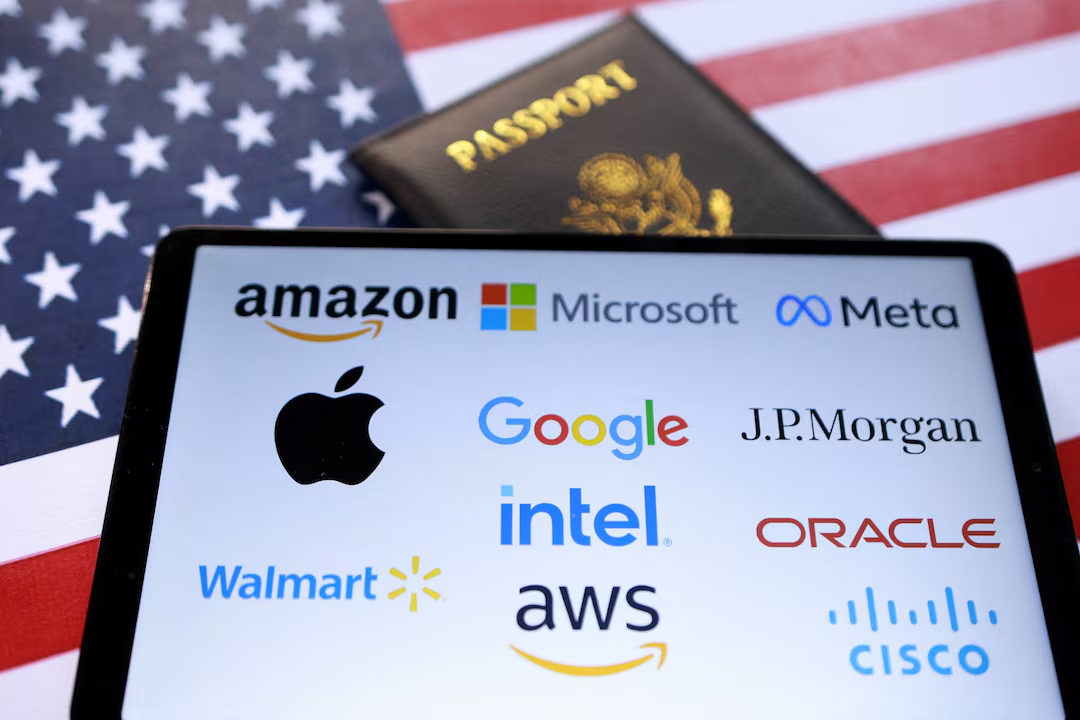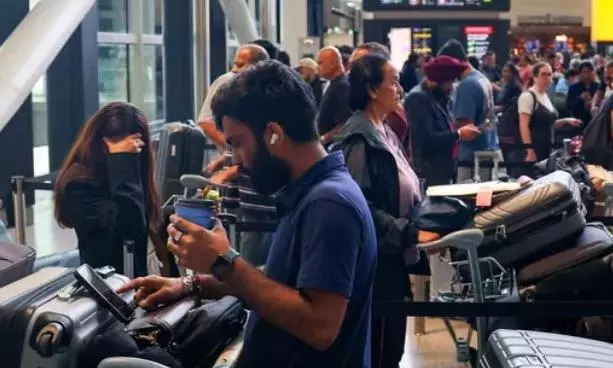
Trump’s H-1B visa crackdown drives US firms to shift work to India
text_fieldsHyderabad: U.S. President Donald Trump’s H-1B visa crackdown is expected to accelerate the shift of critical work to India, boosting the growth of global capability centres (GCCs) that handle operations from finance to research and development, economists and industry insiders say.
India, the world’s fifth largest economy, hosts 1,700 GCCs, over half the global total, which have evolved from tech support units into hubs of high value innovation, spanning luxury car dashboard design to drug discovery.
Trends such as rising adoption of artificial intelligence and stricter visa rules are prompting U.S. firms to rethink labour strategies, with Indian GCCs emerging as resilient centres combining global skills with strong domestic leadership.
“GCCs are uniquely positioned for this moment. They serve as a ready in-house engine,” said Rohan Lobo, partner and GCC industry leader at Deloitte India, noting that several U.S. firms are reassessing workforce needs. “Plans are already underway,” he added, highlighting growing activity in financial services, technology, and among firms exposed to U.S. federal contracts. Lobo said GCCs are expected to “take on more strategic, innovation-led mandates” over time.
The visa changes include raising the cost of new H-1B applications to $100,000, from the previous range of $2,000 to $5,000, putting pressure on U.S. firms that rely on skilled foreign workers. On Monday, U.S. senators reintroduced legislation tightening H-1B and L-1 visa rules, targeting perceived loopholes and misuse by major employers.
If the visa restrictions remain, experts expect U.S. firms to relocate high-end work related to AI, product development, cybersecurity, and analytics to their India GCCs, keeping strategic functions in-house rather than outsourcing. The recent policy shifts have intensified discussions about moving high-value work to GCCs, which many firms had already been considering.
“There is a sense of urgency,” said Lalit Ahuja, founder and CEO of ANSR, which helped companies such as FedEx, Bristol-Myers Squibb, Target, and Lowe’s establish their GCCs in India.
Such moves could lead to “extreme offshoring” in some cases, said Ramkumar Ramamoorthy, former managing director of Cognizant India, noting that the COVID-19 pandemic demonstrated that critical tech tasks could be performed remotely.
Major tech and financial firms, including Amazon, Microsoft, Apple, Google parent Alphabet, JPMorgan Chase, and Walmart, are among the top H-1B sponsors, with substantial operations in India. Many declined to comment, citing the political sensitivity of the issue.
“Either more roles will move to India, or corporations will near-shore them to Mexico or Colombia. Canada could also benefit,” said the head of a retail GCC in India.














